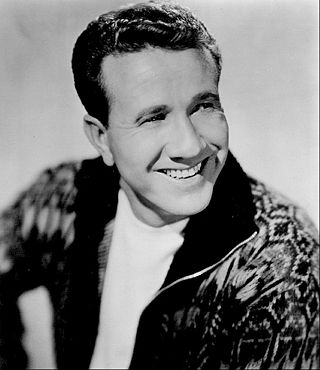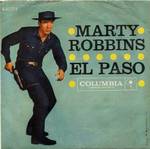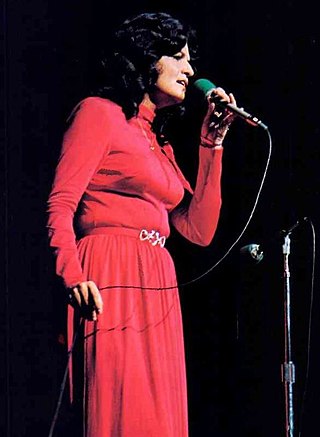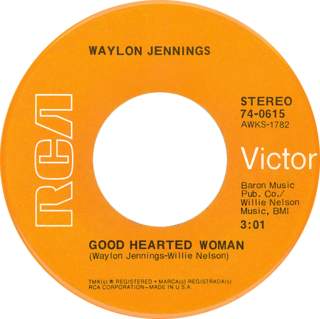
Martin David Robinson, known professionally as Marty Robbins, was an American singer, songwriter, multi-instrumentalist, and NASCAR racing driver. Robbins was one of the most popular and successful country and western singers for most of his nearly four-decade career, which spanned from the late 1940s to the early 1980s. He was also an early outlaw country pioneer.

"El Paso" is a western ballad written and originally recorded by Marty Robbins, and first released on Gunfighter Ballads and Trail Songs in September 1959. It was released as a single the following month, and became a major hit on both the country and pop music charts, becoming the first No. 1 hit of the 1960s on both. It won the Grammy Award for Best Country & Western Recording in 1961. It is widely considered a genre classic for its gripping narrative which ends in the death of its protagonist, its shift from past to present tense, haunting harmonies by vocalists Bobby Sykes and Jim Glaser and the eloquent and varied Spanish guitar accompaniment by Grady Martin that lends the recording a distinctive Tex-Mex feel. The name of the character Feleena was based upon a schoolmate of Robbins in the fifth grade, Fidelina Martinez.
"If We Make It Through December" is a song written and recorded by American country music singer Merle Haggard and the Strangers. It was released in October 1973 as the lead single from the album Merle Haggard's Christmas Present, and was the title track on a non-Christmas album four months later. In the years since its release, "If We Make It Through December" — which, in addition to its Christmas motif, also uses themes of unemployment and loneliness — has become one of the trademark songs of Haggard's career.

Jeanne Pruett is an American country music singer and songwriter. She also has credits as a published author. Pruett had several major hits as a music artist, but became best-known for 1973's "Satin Sheets". The song topped the country music charts and helped her secure a membership in the Grand Ole Opry cast.
"Ringo" is a popular song written by Don Robertson and Hal Blair. It was a hit single for Canadian-born actor Lorne Greene in 1964. It reached #1 on the U.S. Billboard charts on December 5, 1964, as well as garnering the same spot on the "Easy Listening" chart, where it retained the position for six weeks. The single also peaked at #21 on the Hot Country Singles chart. In Canada, it hit #1 on the RPM top singles chart on December 7, 1964.

The discography of American country music singer Marty Robbins consists of 52 studio albums, 13 compilation albums, and 100 singles. In his career, Robbins has charted 17 Number One singles on the Billboard Hot Country Songs charts, as well as 82 Top 40 singles.
"Laura (What's He Got That I Ain't Got)" is a song co-written and recorded by American country music singer Leon Ashley. Recorded in 1967 and released on his own Ashley Records label, the song was his only No. 1 single that September. Frankie Laine and Brook Benton took cover versions to the pop and Adult Contemporary charts that year, while Claude King, Marty Robbins and Kenny Rogers charted their own versions on the country charts.
"You Gave Me a Mountain" is a song written by country singer-songwriter Marty Robbins during the 1960s. It has been recorded by many artists, including Robbins himself, but the highest-charting version of the song was by Frankie Laine in 1969. This version was included on Laine's album of the same name.
"Don't Worry" is a song written and recorded by American country music artist Marty Robbins. It was released in February 1961 as the third single from his compilation album More Greatest Hits. The song was Robbins' seventh number one on the country chart and stayed at number one for ten weeks. The single crossed over to the pop chart and was one of Marty Robbins' most successful crossover songs, peaking at number three on the Hot 100.
Devil Woman is a song written and recorded by American country music artist Marty Robbins. It was released in June 1962 as the first single and title track from the album Devil Woman. It was also Robbins' seventh single to reach number one on the country chart, spending eight weeks at the top spot. "Devil Woman" also crossed over onto the pop chart, peaking at number sixteen. Overseas, "Devil Woman" was Robbins' most successful single on the UK charts.
"Ribbon of Darkness" is a song written by Gordon Lightfoot that was released in 1965 as a single by Marty Robbins. The song was Robbins' eleventh number one on the U.S. country singles chart, where it spent one week at the top and a total of nineteen weeks on the chart.
"I Walk Alone" is a song written by Herbert Wilson. and recorded by American country music artist, Eddy Arnold and was the B-side of his 78 rpm single "Did You See My Daddy Over There" (1945), and later for his compilation album Eddy Arnold Sings Them Again (1960).
"My Woman, My Woman, My Wife" is a song written and recorded by American country music artist Marty Robbins. It was released in January 1970 as the first single and title track from the album My Woman, My Woman, My Wife. The song was Robbins' 14th number one on the country chart. The single spent a single week at number one and spent a total of 15 weeks on the country charts. The song won the Grammy Award for Best Country Song in 1971.

"Good Hearted Woman" is a song written by American country music singers Waylon Jennings and Willie Nelson.
"Seven Spanish Angels" is a song written by Troy Seals and Eddie Setser, and recorded by Ray Charles as a duet with Willie Nelson. It was released in November 1984 as a single from Charles' 1984 album Friendship. Charles and Nelson split the verses, with Charles singing the first and Nelson the second, Charles sang the first and second choruses with Nelson joining for the outro. It was also included on Nelson's 1985 compilation album Half Nelson. "Seven Spanish Angels" was the most successful of Charles' eight hits on the country chart. The single spent one week at number one and a total of twelve weeks on the country chart.

"(I'm A) Stand by My Woman Man" is a song written by Kent Robbins, and recorded by American country music artist Ronnie Milsap. It was released in July 1976 as the second single from the album 20/20 Vision. The song was Milsap's sixth number one on the country chart. The single stayed at number one for two weeks and spent a total of eleven weeks within the top 40. It is an answer song to Tammy Wynette's Stand By Your Man. Backing vocals were provided by The Holladay Sisters.

"Big Iron" is a country ballad written and performed by Marty Robbins, originally released as an album track on Gunfighter Ballads and Trail Songs in September 1959, then as a single in February 1960 with the song "Saddle Tramp" as the B-side single. Members of the Western Writers of America chose it as one of the Top 100 Western songs of all time.

El Paso City is a studio album by country music singer Marty Robbins. It was released in 1976 by Columbia Records. Billy Sherrill was the producer.

The Drifter is a studio album by country music singer Marty Robbins. It was released in 1966 by Columbia Records.








